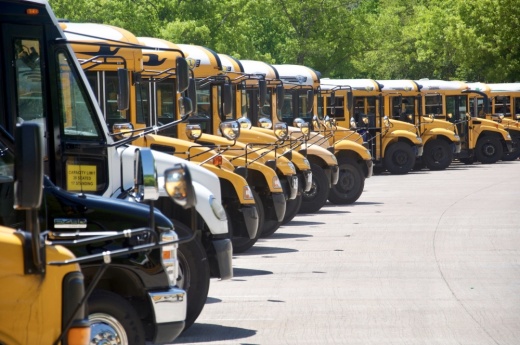Below are six public education bills approved by the Texas Legislature and a look at what's to come.
House Bill 3, by Rep. Dustin Burrows, R-Lubbock
All public and open-enrollment charter schools must have at least one armed security officer—such as a law enforcement officer, school marshal or teacher licensed to carry a handgun—on campus during regular school hours. Each district will receive $15,000 per campus and $10 per student for school safety initiatives.
Status: becomes law Sept. 1
Senate Bill 10, by Sen. Joan Huffman, R-Houston
Retired teachers age 75 and older will receive a one-time $7,500 check and retirees 70-74 years old will receive a $2,400 check. Many retired teachers will also receive a cost-of-living adjustment to combat inflation. Those who retired before 2001 will get a 6% adjustment, those who retired between 2001-2013 will get a 4% adjustment, and those who retired between 2013-2020 will get a 2% adjustment.
Status: becomes law Sept. 1; cost-of-living adjustment takes effect Jan. 1 if approved by voters.
Senate Bill 763, by Sen. Mayes Middleton, R-Galveston
School districts can hire or allow volunteer chaplains to perform the duties of school counselors. They can provide mental and behavioral health services and other support to K-12 students. Unlike traditional counselors, chaplains are not required to be certified by the State Board for Educator Certification.
Status: becomes law Sept. 1
Senate Bill 838, by Sen. Brandon Creighton, R-Conroe
By the 2025-26 school year, all public and charter school classrooms must have silent panic alert devices. The electronic devices, which can be activated manually or through an app, are used to immediately alert district officials and law enforcement of an active shooter or other issue, such as a medical emergency. State leaders created a $17.1 million grant program to help schools purchase panic alert devices in 2022.
Status: became law May 5
House Bill 900, by Rep. Jared Patterson, R-Frisco
Schools will not be allowed to purchase or display books deemed “sexually explicit” or “educationally unsuitable.” The bill establishes a new rating system for books and other educational materials. Book vendors must rate all their content, and libraries will review their materials every odd-numbered year.
Status: becomes law Sept. 1
House Bill 1883, by Rep. Salman Bhojani, D-Euless
Schools must provide alternative assessment dates for any tests scheduled on religious holy days or periods of observance. This includes any holy days observed by religions whose places of worship are exempt from property taxes in Texas, including Christianity, Judaism, Islam, Hinduism, Buddhism, Sikhism and more.
Status: became law June 18
Bills that didn’t make the cut
House Bill 100, by Rep. Ken King, R-Canadian
This legislation would have raised the minimum salaries for public school employees, boosted the amount of money schools receive from the state and increased funding for certain programs, such as bilingual and early education classes. The bipartisan House proposal died during the final days of the regular session after senators added a variety of “school choice” measures, which the House has historically opposed.
Senate Bill 9, by Sen. Brandon Creighton, R-Conroe
In line with recommendations from the Texas Teacher Vacancy Task Force, this bill was aimed at improving teacher retention by providing one-time bonuses for educators, creating a teacher residency program and helping schools rehire retired teachers. The bill failed after House lawmakers tacked on other school funding and support measures.
Lawmakers are expected to return to Austin for a third special legislative session in October. They will likely discuss teacher pay raises, school funding and school choice, or the use of state funds to send students to private schools.





